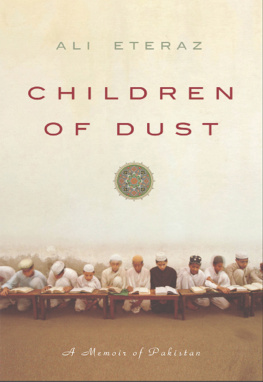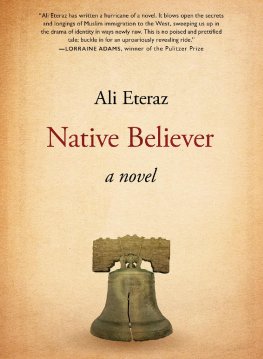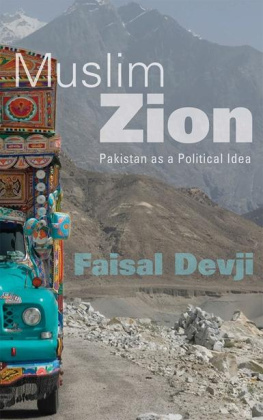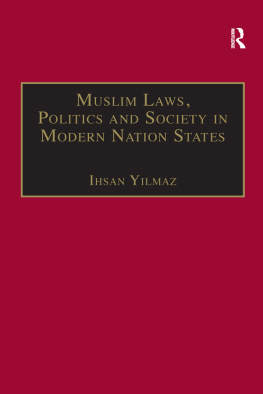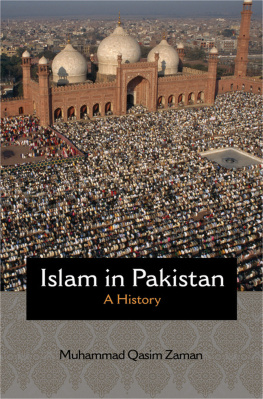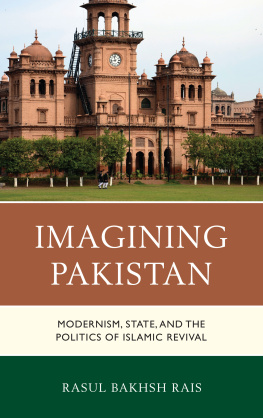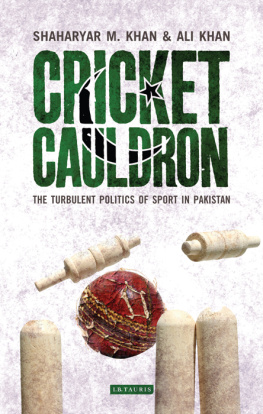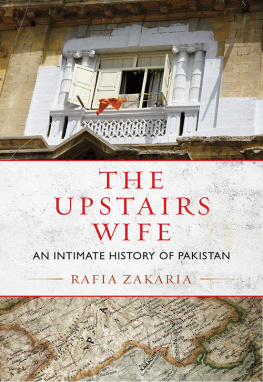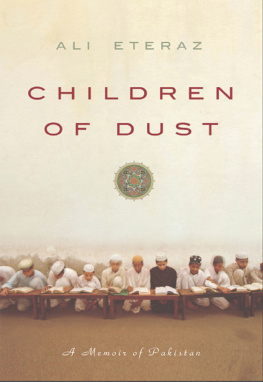Contents
The PromisedAbir ul Islam
In which the author, as a child in Pakistan, learns of his destiny and attends a madrassa
The AmericanAmir
In which the author leaves Pakistan and arrives in the United States, where, living in the Bible Belt, he attempts to navigate life in high school while dealing with his parents, who are now fundamentalists
The FundamentalistAbu Bakr Ramaq
In which the author, newly arrived at college in Manhattan, embraces the superiority of Islam over all things, culminating with a trip to Pakistan, where he intends to (1) find a pious Muslim wife who will protect him from secularisms sexual temptation and (2) investigate his relationship with an ancient Caliph of Islam
The PostmodernAmir ul Islam
In which the author returns from his disappointing sojourn in Pakistan and begins exploring anti-Islamic ideas at a new university, where he nevertheless insists on remaining associated with Muslims and ends up becoming president of the MSA
The ReformerAli Eteraz
In which the author, aghast at the militant and murderous use to which Islam is being put, becomes an activist and goes to the Middle East to start a reformation
I n Mecca fathers become inclined to give up their sons.
In 1980, at the spot where the Prophet Ibrahim once sought to slaughter his son Ismail after receiving a revelation from God; at the same place where God gave a dream to Abdul Muttalib asking him to sacrifice his son Abdullah; my twenty-two-year-old father-to-be put his head to the floor and entered into a covenant with Allah Azzawajal, the Exalted.
Ya Allah! If you should give me a son, he said, I promise that he will become a great leader and servant of Islam!
That accord, called a mannat , made before my birth, singularly and exclusively guided my life for three decades. It conditioned me to serve Islam and it made the service of Islam my condition. In fulfillment of that covenant I studied at madrassa s. I rejected the companionship of non-Muslims. I rose up against secularism. I struggled on behalf of oppressed Muslims. And, in the age of terrorism, I sought to become a reformer of Islam.
To say that I was enamored of Islam would be an understatement. I waved the banners of this faith from Asia to America. I studied Islamic scripture and scholarship from an early age. I aspired, perspired, and prayed to one day be lucky enough to rise to the apex of my religion. Over and over again I strove to be an Islamic activistto become the embodiment of Muhammads religion.
This book is about what happened when I loved Islamwith affection, with torment, with stupiditymore than anything else in this world. This book is about ardor bordering on obsession. This book is about a thoroughly Islamic childhood and about a boys attempt not merely to know his identity, but to assert his sovereignty. (Some parts of it are about the girls he met along the way.)
Read! In the name of the God who taught man the use of the penand remember, you cant get a death fatwa for laughing.
M y mother, Ammi, had just returned from Koh-e-Qaf, where women went when they were annoyed with their husbands. It was far up in the heavens, far beyond the world of men, above the astral planes of the jinn s, and hidden even from the angels. Upon reaching Koh-e-Qaf a woman became a parri and congregated with others like her. Then all the parri s gathered upon rippling streams and rivers of celestial milk. They bathed and splashed and darted around on rich, creamy froth.
I was just a seven-year-old child living in a tiny apartment in Lahore, Pakistan. I couldnt get enough of Koh-e-Qaf.
What happens there? I asked Ammi. Please tell me! Please!
Its a safe place where I can gather my thoughts, she said. When women go there, we dont take our earthly concerns with us. We dont even need our earthly clothes. Allah restores to us the cuticle skin we had when He first created Hazrat Adam and his wife, Havva.
Ammi said that Koh-e-Qaf was created secretly at the time the universe was made. Allah had asked each one of His creations whether they would be willing to bear the burden of free will. He asked the mountains and they said no. He asked the skies and they refused. He asked the sun and the seas and the plants and the trees and the angels. They all said no. But Adam, the first malewho took too many risks just like your Popsaccepted the burden. And he didnt even ask his wife what he was getting into! Upon hearing the news, a chagrined Havva went to Allah and told Him that men would make a big mess of things and then take out their frustration on their wives. So, for all the wives of the world, Havva convinced Allah to create Koh-e-Qaf, a sanctuary for all time.
Then she made Allah give long nails to women so they could remember their special place.
Thats not fair, I said, poking a finger through Ammis curly black hair. I dont have a special place to go to.
You dont need a special place, she replied. My little piece of the moon is more special than the whole world.
Youre just saying that.
No, Im not, she said. Havent you ever thought about what your name means?
Abir?
Your full name. Abir ul Islam.
So what? Its just a name.
Not just a name.
I shrugged. Compared to intergalactic travel and teleportation and heavenly drinks, my name didnt inspire much awe.
Come on, Ammi said, taking my hand as if she could read the disappointment on my face. You dont believe me? Lets go see Beyji. She will tell you that you are the most special.
Beyji was my maternal great-grandmother. She lived in a white marble bungalow in Lahore. She was a saint because she had forgiven the woman who used black jadu to kill Beyjis husband. Beyji regularly met with the Holy Prophet Muhammad in her dreams. One year, during the Night of Power in the month of Ramzan, she got chosen as one of Allahs elect and saw a glimpse of the Light.
Ammi led me past my grandfathers room, where he was busy listening to old Noor Jahan recordings, and toward Beyjis darkened quarters. We went inside and Ammi pushed me toward Beyjis bed. She wore a floral print shalwar kameez loose trousers with a tunic topand had cast a gauzy blue dupatta over her head. Taking my wrist with one hand and holding my chin with the other, she gave me a smile. Her gummy mouth murmured a series of prayers.
Beyji, Ammi said. This one doesnt believe me when I tell him that hes special.
The most special, Beyji corrected.
I told him that his name is Abir ul Islam.
Such a beautiful name, isnt it?
He doesnt think its such a big deal.
Is that right? Beyji looked at me for confirmation.
I made my case. Ammi flies around like a parri and goes to Koh-e-Qaf. I just sit here.
Beyji looked at me with compassion. She pulled a piece of dried orange out from under her pillow and handed it to me. Come and sit with me, she invited. Then ask your Ammi to tell you the story of your birth.
What about it?
Shell tell you, Beyji said.
Ammi sat down on the other bed and rested a cup of chai on the palm of her hand. With two fingers she pinched the cream congealed on the surface.

